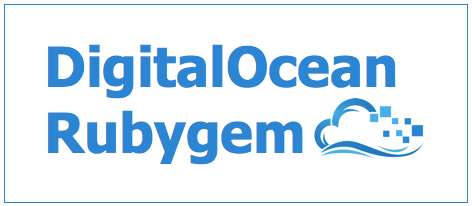
Security News
Rspack Introduces Rslint, a TypeScript-First Linter Written in Go
Rspack launches Rslint, a fast TypeScript-first linter built on typescript-go, joining in on the trend of toolchains creating their own linters.

Digitalocean.client_id = "your_client_id"
Digitalocean.api_key = "your_api_key"
result = Digitalocean::Droplet.all
# =>
# <RecursiveOpenStruct status="OK", droplets=[
# {"id"=>12345, "name"=>"dev", "image_id"=>2676, "size_id"=>63, "region_id"=>3, "backups_active"=>false, "ip_address"=>"198.555.55.55", "private_ip_address"=>nil, "locked"=>false, "status"=>"active", "created_at"=>"2013-06-12T03:07:14Z"},
# {"id"=>234674, "name"=>"server2", "image_id"=>441012, "size_id"=>62, "region_id"=>1, "backups_active"=>false, "ip_address"=>"192.555.55.56", "private_ip_address"=>nil, "locked"=>false, "status"=>"active", "created_at"=>"2013-06-17T00:30:12Z"}
# ]>
#
result.status
result.droplets
result.droplets.first.ip_address
Add this line to your application's Gemfile:
gem 'digitalocean'
And then execute:
bundle
Or install it yourself as:
gem install digitalocean
Then in your application initialize the gem:
Digitalocean.client_id = "your_client_id"
Digitalocean.api_key = "your_api_key"
You can find your keys at https://cloud.digitalocean.com/api_access
Digitalocean::Droplet.all
Digitalocean::Droplet.find("id_of_droplet")
Digitalocean::Droplet.create({:name => droplet_name, :size_id => size_id, :image_id => image_id, :region_id => region_id})
Digitalocean::Domain.all
Digitalocean::Domain.find(id)
Digitalocean::Domain.create({name: name, ip_address: ip_address})
Digitalocean::Domain.destroy(id)
Digitalocean::Droplet.all
Digitalocean::Droplet.find(id)
Digitalocean::Droplet.rename(id, {name: name})
Digitalocean::Droplet.reboot(id)
Digitalocean::Droplet.power_cycle(id)
Digitalocean::Droplet.shutdown(id)
Digitalocean::Droplet.power_off(id)
Digitalocean::Droplet.power_on(id)
Digitalocean::Droplet.snapshot(id, {name: name})
Digitalocean::Droplet.create({name: name, size_id: size_id, image_id: image_id, region_id: region_id, ssh_key_ids: ssh_key_ids})
Digitalocean::Droplet.destroy(id)
Digitalocean::Droplet.resize(id, {size_id: size_id})
Digitalocean::Image.all
Digitalocean::Image.all({filter: "my_images"})
Digitalocean::Image.find(id)
Digitalocean::Image.destroy(id)
Digitalocean::Image.transfer(id, {region_id: region_id})
Digitalocean::Record.all(domain_id)
Digitalocean::Record.find(domain_id, record_id)
Digitalocean::Record.create(domain_id, {record_type: record_type, data: data})
Digitalocean::Record.edit(domain_id, record_id, {record_type: record_type, data: data})
Digitalocean::Record.destroy(domain_id, record_id)
Digitalocean::Region.all
Digitalocean::Region.find(region_id)
Digitalocean::Size.all
Digitalocean::Size.find(size_id)
Digitalocean::SshKey.all
Digitalocean::SshKey.find(id)
Digitalocean::SshKey.create({name: name, ssh_pub_key: ssh_pub_key}) # Keep in mind you have to use CGI::escape for your ssh_pub_key
Digitalocean::Event.find(id)
There is a digitalocean-rubygem-example to help jumpstart your development.
Digitalocean.verify_ssl = false # optionally set this to false. defaults to true.
git checkout -b my-new-feature)git commit -am 'Add some feature')git push origin my-new-feature)When adding methods, add to the list of DEFINITIONS in lib/digitalocean.rb. Additionally, write a spec and add it to the list in the README.
bundle exec rspec spec/*
You first need to request access from scottmotte.
gem build digitalocean.gemspec
gem push digitalocean-1.0.1.gem
FAQs
Unknown package
We found that digitalocean demonstrated a not healthy version release cadence and project activity because the last version was released a year ago. It has 2 open source maintainers collaborating on the project.
Did you know?

Socket for GitHub automatically highlights issues in each pull request and monitors the health of all your open source dependencies. Discover the contents of your packages and block harmful activity before you install or update your dependencies.

Security News
Rspack launches Rslint, a fast TypeScript-first linter built on typescript-go, joining in on the trend of toolchains creating their own linters.

Security News
Hacker Demonstrates How Easy It Is To Steal Data From Popular Password Managers

Security News
Oxlint’s new preview brings type-aware linting powered by typescript-go, combining advanced TypeScript rules with native-speed performance.